How Toilets are Helping Migrant Women Break Barriers & Become Financially Independent
Female masons from Muslim migrant community and other local communities in lower Assam’s Barpeta district break gender stereotypes by building toilets
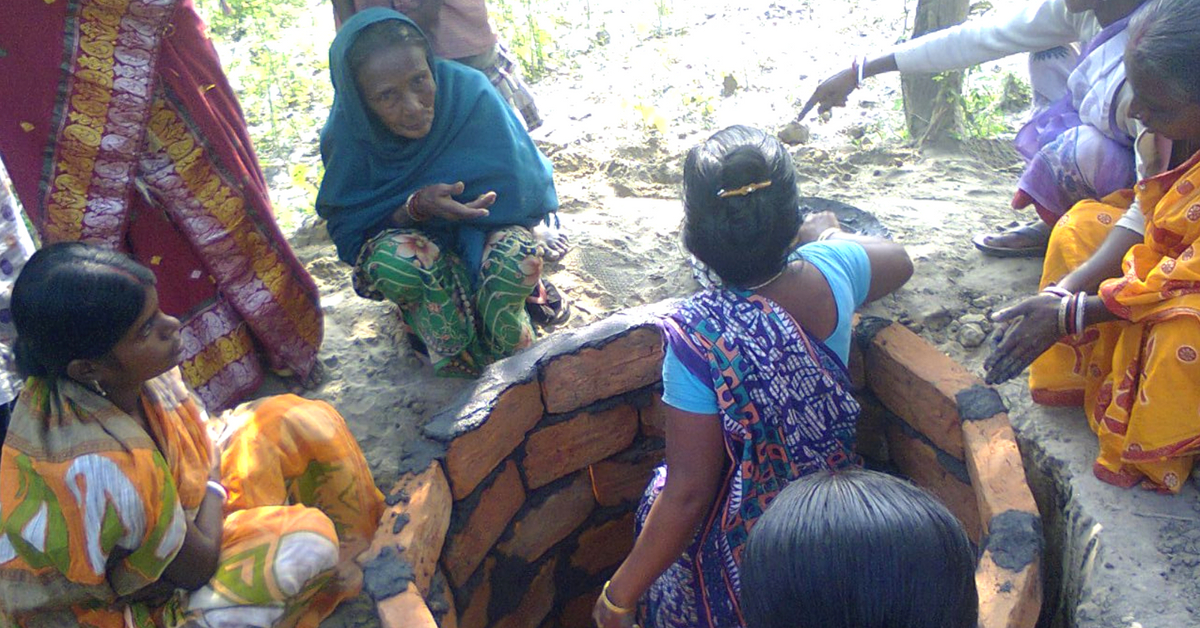
Noor Nehar Begum who hails from the Bengali-speaking Muslim migrant community from Bhulukabari Pathar village in Assam’s Barpeta district is an independent woman. For the 1.5 years, she has been contributing to her family’s financial needs by working as a female mason. In the process, she has broken the notion that the women should stay at home to raise children and be dependent on the man.
Like Begum, scores of women from her community in Barpeta district have been working with fellow female masons from the Assamese, Bengali, Hindu and Bodo communities side-by-side, constructing toilets, and fostering a rare kind of social mobilisation, unity and female empowerment.
Begum shares, “Before working as a female mason, I had no money, and my husband used to overlook me. I couldn’t pay the tuition fees for my two sons. Now, I contribute financially to my family. There is respect for me in the house and the village. I have challenged the social convention norms that keep women constricted and tied to a particular role. When I was learning masonry, many men in the village asked my husband why I was doing a man’s job. Now, they don’t dare to tell me anything. I work with female masons from different communities and there is greater understanding between us. I am also learning Assamese now.”
The female masons started with a total number of 10 which increases to 22. In a short span of time, the number of female masons in Barpeta snowballed to 322.
Their work was appreciated, and the demand for their work increased. They braved chauvinism and challenging social barriers, across seven villages in and around Barpeta district.
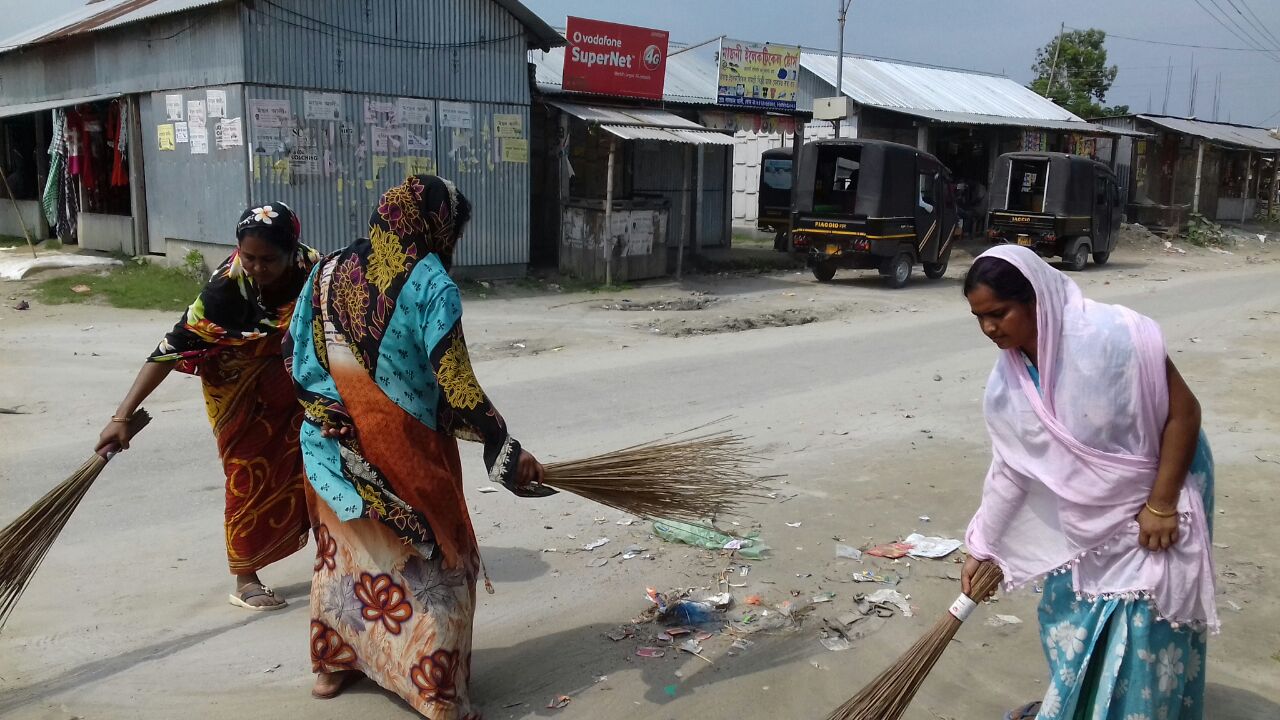
Arpana Adhikary, the district water/sanitation consultant, conceptualised the idea of roping in female masons for the task at hand. She says, “The entire concept began in 2014 when the Swacch Bharat Mission was rolled in. We came to realise that male masons were not enthusiastic about doing quality work. I decided to rope in female wage earners as masons. Training was imparted to them, and soon they embarked on their mission.”
Through masonry, these women discovered financial independence. Once illiterate, the female masons now take orders, plan the design, implement and cut bank cheques.
“They are in demand for their expertise in masonry. They are much better than their male counterparts. They know intricate details, and their approach and perception towards building toilets is positive as they craft ideas which they implement,” added Adhikary.
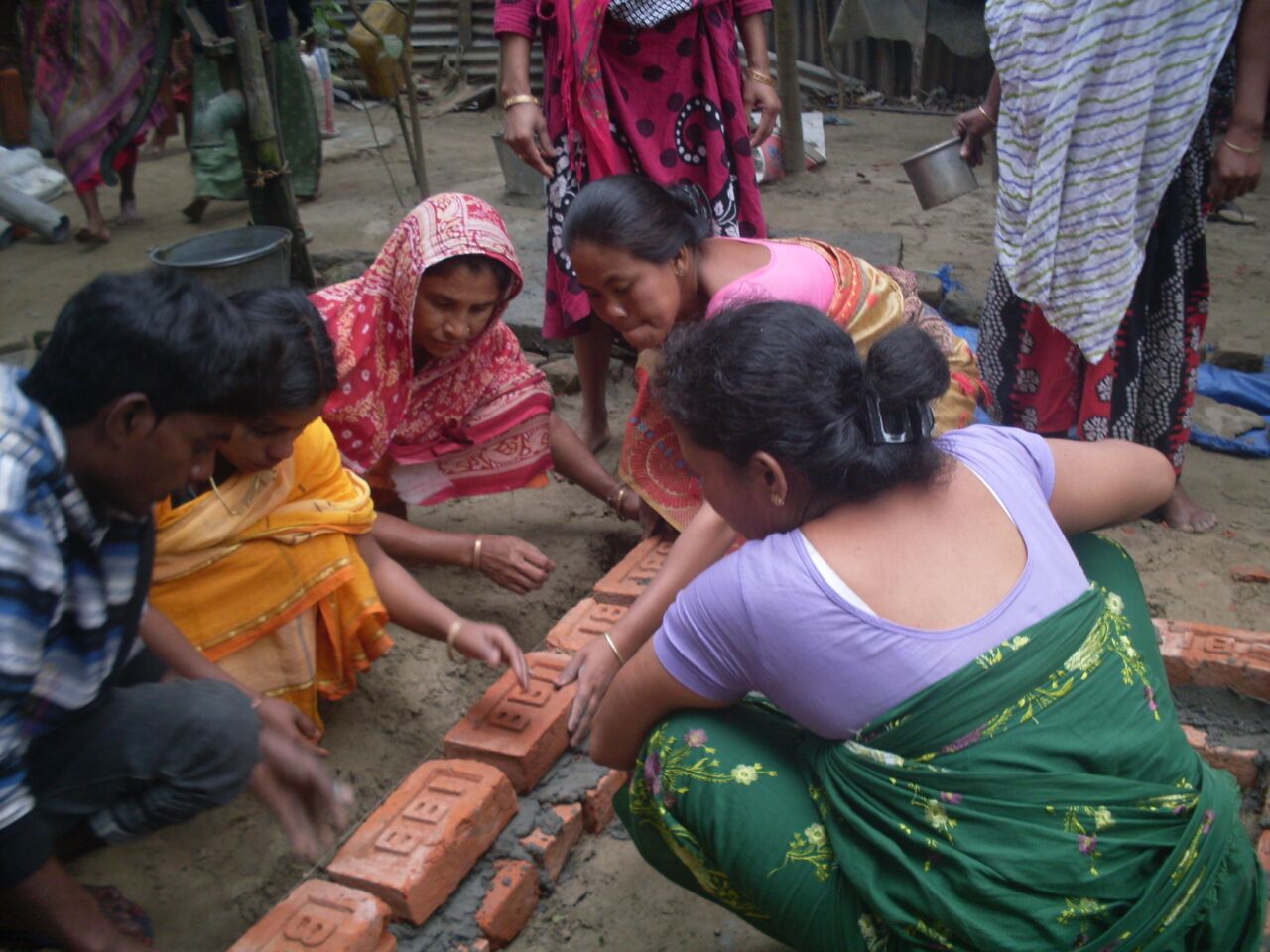
Jalkara Village: Last December, a group of 112 village women from a nondescript, minority-dominated and low-lying Jalkara village in Barpeta district, began to seek training in masonry. They learnt about the female masons in the district and concerned about the pathetic sanitation conditions in their village, they decided to build toilets in their village.
With 369 households, Jalkara village comes under Paschim Paka Gaon Panchayat (GP), which remains inundated for the most of the year. Till December of 2017, there were only 17 households with pucca toilets, but the female masons constructed pucca toilets for 106 households.
Also Read: Govt. Didn’t Act, So UP Villager Sells Goats To Build a Toilet!
“In Jalkara, most of the men work outside the state as labourers. Open defecation is widely prevalent. During floods, sanitation is nil. Villagers here use kuchha toilets or resort to open defecation,” explains Adhikary.
The women then approached a team of female masons from Dakhin Pachim Bedbari which is another gaon panchayat. The team from this gaon panchayat (GP) had built hundreds of pucca toilets.
“It all started when some of the women from Jalkara came to our gaon panchayat. They met some of the female masons here and the word about their work spread. Jalkara is dry for three months and inundated for the rest of the year. It is so remote and low-lying that NGOs prefer to stay away from it,” said Adhikary.
There are now four self-help groups operating in the district which are solely dedicated to building and constructing toilets and creating awareness about cleanliness. The female masons also use technology in figuring out GPS coordinates during construction.
“After the construction of toilets, I have seen that stomach-related ailments have dropped in my village. As a mother and a wife, I now feel relieved,” shares Begum.
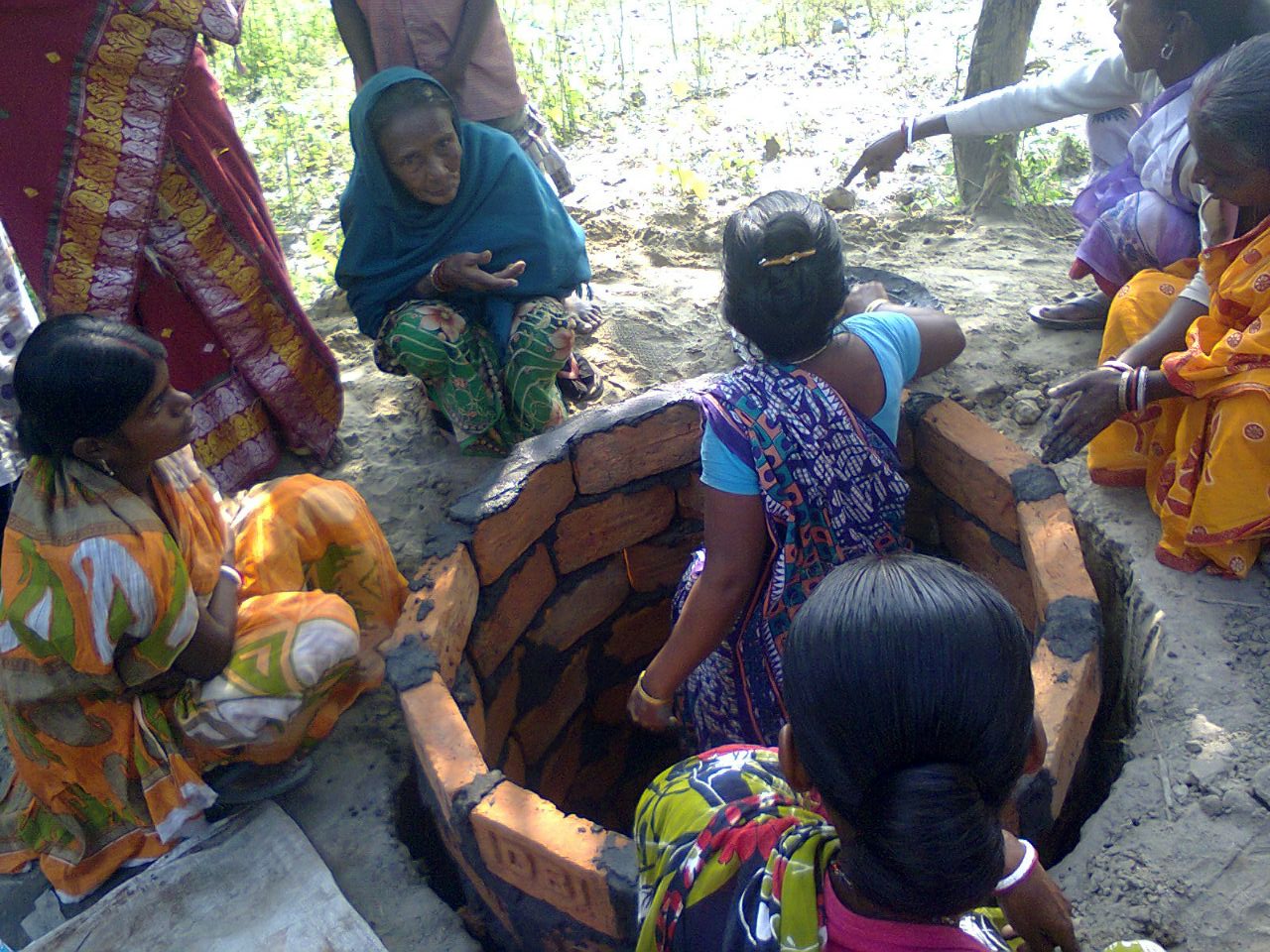
This is not all there is to the matter.
A two-day training was held in March for women in Dhakua Gaon who were interested in female masonry. Training was imparted on pit-digging and other toilet-constructing technicalities.
Dhakua Gaon: “I was surprised to see how the women in that village began to develop these skills in a short span of time. Training was given under the leadership of a master mason. Training was held from March 25 to 27. Since then, with the help of experienced masons, the female masons from Dhakua village have built close to 30 toilets,” notes Adhikary.
Under SBM, the government shells out Rs 12,000 for building a single pucca toilet unit.
The female masons, in the same manner, managed to save Rs 18,36,000 by motivating 153 households in Balarvitha to spend a portion of their income in building toilets instead of depending on the government.
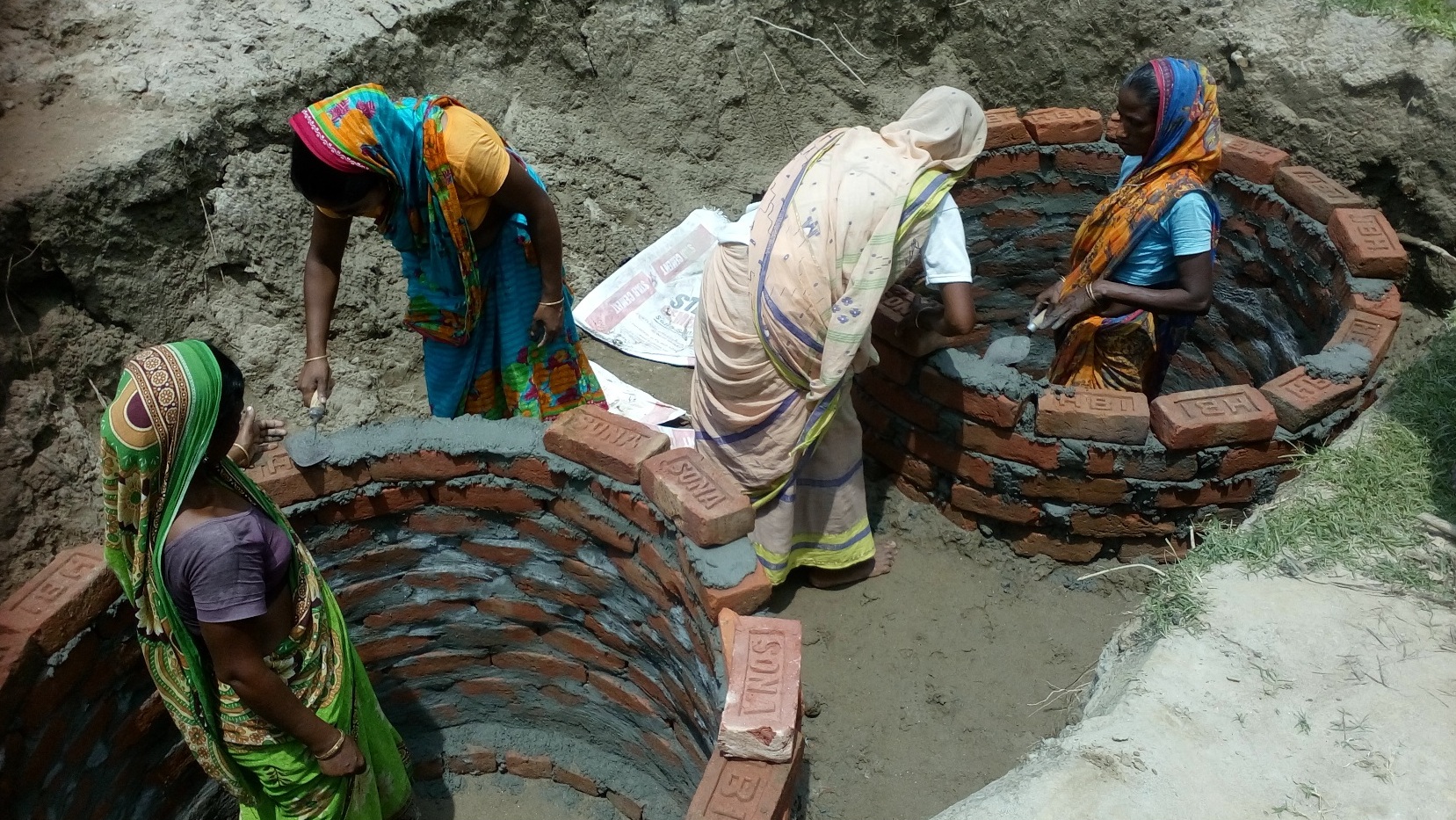
According to the District Water Sanitation Department, these female masons work across 11 villages in the district, covering five gaon panchayats, constructing 1,423 toilets. They also engage in village cleanliness programmes, orientation of school students, school cleanliness and plantation of trees.
You May Also Like: 100% Sanitation in 1,000 Days: This AP Village Is Meticulously Working Towards Achieving the Unthinkable
Besides exemplifying female empowerment with their quality masonry work, these women have also saved lakhs of rupees of the state’s exchequer by motivating rural households with a decent income to build toilets.
(Written by Gaurav Das and Edited by Shruti Singhal)
Like this story? Or have something to share? Write to us: [email protected]
Connect with us on Facebook and Twitter.
NEW: Click here to get positive news on WhatsApp!
If you found our stories insightful, informative, or even just enjoyable, we invite you to consider making a voluntary payment to support the work we do at The Better India. Your contribution helps us continue producing quality content that educates, inspires, and drives positive change.
Choose one of the payment options below for your contribution-
By paying for the stories you value, you directly contribute to sustaining our efforts focused on making a difference in the world. Together, let’s ensure that impactful stories continue to be told and shared, enriching lives and communities alike.
Thank you for your support. Here are some frequently asked questions you might find helpful to know why you are contributing?


This story made me
-
97
-
121
-
89
-
167













